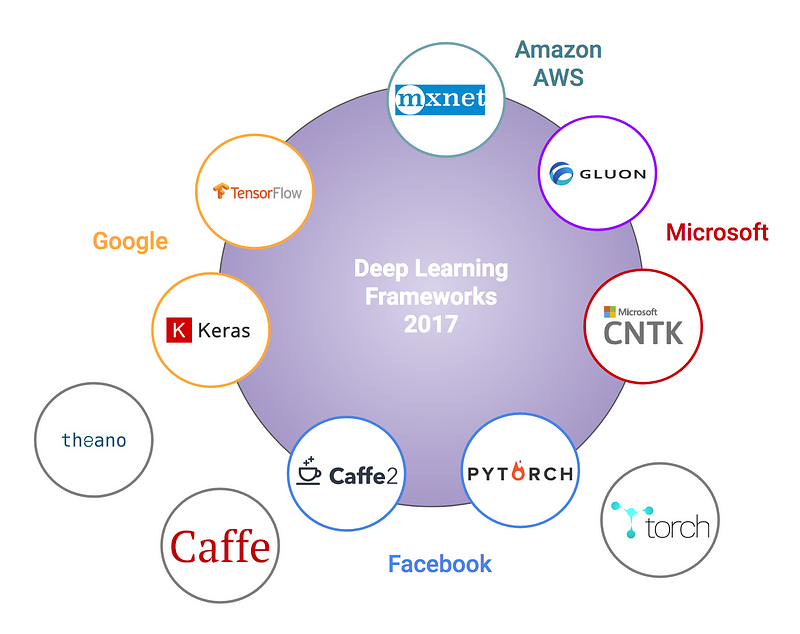- Python
- Python Packages
- Mathematics and Linear Algebra
- Programming & Analysis Tools
- Big Data
- Data visualization
- Data Cleaning
- How to solve Problem?
- Machine Learning
- Deep Learning
If you Read and Follow Job Ads to hire a machine learning expert or a data scientist, you find that some skills you should have to get the job. In this Repository, I want to review 10 skills that are essentials to get the job
In fact, this Repository is a reference for 10 other Notebooks, which you can learn with them, all of the skills that you need.
Python is a modern, robust, high level programming language. It is very easy to pick up even if you are completely new to programming.
You can read and learn following topic on this Notebook:
-
web development (server-side)
-
software development
-
mathematics
-
system scripting.
-
Basics
-
Functions
-
Types and Sequences
-
More on Strings
-
Reading and Writing CSV files
-
Dates and Times
-
Objects and map()
-
Lambda and List Comprehensions
-
OOP
for Reading this section please fork this kernel:
numpy-pandas-matplotlib-seaborn-scikit-learn
-
Numpy
-
Pandas
-
Matplotlib
-
Seaborn
In this Step, we have a comprehensive tutorials for Five packages in python after that you can start reading my other kernels about machine learning and deep learning.
-
Creating Arrays
-
Combining Arrays
-
Operations
-
Math Functions
-
Indexing / Slicing
-
Copying Data
-
Iterating Over Arrays
-
The Series Data Structure
-
Querying a Series
-
The DataFrame Data Structure
-
Dataframe Indexing and Loading
-
Missing values
-
Merging Dataframes
-
Making Code Pandorable
-
Group by
-
Scales
-
Pivot Tables
-
Date Functionality
-
Distributions in Pandas
-
Hypothesis Testing
-
Matplotlib
-
Scatterplots
-
Line Plots
-
Bar Charts
-
Histograms
-
Box Plots
-
Heatmaps
-
Animations
-
Interactivity
-
DataFrame.plot
-
Seaborn Vs Matplotlib
-
Useful Python Data Visualization Libraries
-
Introduction
-
Algorithms
-
Framework
-
Applications
-
Data
-
Supervised Learning: Classification
-
Separate training and testing sets
-
linear, binary classifier
-
Prediction
-
Back to the original three-class problem
-
Evaluating the classifier
-
Using the four flower attributes
-
Unsupervised Learning: Clustering
-
Supervised Learning: Regression
for Reading this section please fork this kernel:
numpy-pandas-matplotlib-seaborn-scikit-learn
for Reading this section please fork this kernel:
for Reading this section please fork and upvote this kernel:
for Reading this section please fork this kernel:
A-Comprehensive-Deep-Learning-Workflow-with-Python
for Reading this section please fork this kernel:
for Reading this section please fork this kernel:
The purpose of this section is to solve a few real problem. so, we have tried to solve some problems such as Quora, Elo, House price prediction. for Reading this section please fork this kernel:
A-Comprehensive-Deep-Learning-Workflow-with-Python
for Reading this section please fork this kernel:
A Comprehensive ML Workflow with Python
for Reading this section please fork this kernel:
A-Comprehensive-Deep-Learning-Workflow-with-Python
---------------------------------------------------------------------I hope you have enjoyed reading my python notebook.
If you have any problem and question to run notebook please open an issue here in github.
for most of the my notebook you need dataset as input.
To use the correct data, please download the dat set from the Kaggle site and put it in your notebook folder.
Mj Bhamnai
mohamadjavad.bahmani@gmail.com
If you use my code in your research, please cite this project.
@misc{10-steps-to-become-a-data-scientist,
author = {MJ Bahmani,
title = {10-steps-to-become-a-data-scientist},
howpublished = {\url{https://github.com/mjbahmani/10-steps-to-become-a-data-scientist/}},
year = {2018}
}
Have Fun!
1. Follow me On GitHub
2. Follow me On Kaggle

